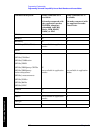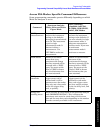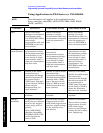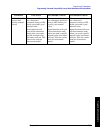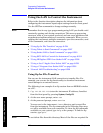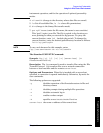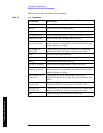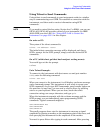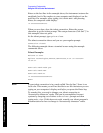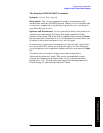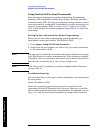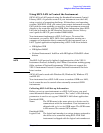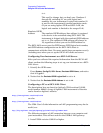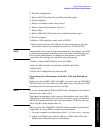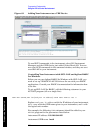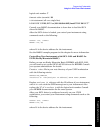
528 Chapter6
Programming Fundamentals
Using the LAN to Control the Instrument
Programming Fundamentals
Enter on the last line in the example above, the instrument returns the
amplitude level of the marker to your computer and displays it on the
next line. For example, after typing CALC:MARK:MAX? and pressing
Enter, the computer could display:
+2.50000000000E+010
When you are done, close the telnet connection. Enter the escape
character to get the telnet prompt. The escape character (Ctrl and "]" in
this example) does not print.
At the telnet prompt, type quit or close.
The telnet connection closes and you see your regular prompt.
Connection closed.
The following example shows a terminal screen using the example
commands above.
Telnet Example:
Welcome to at42
Agilent Technologies,E4440A,US41220095,A.02.04 20010921
10:52:07
SCPI>calc:mark:mode pos
SCPI>calc:mark:max
SCPI>calc:mark:x?
+2.5000000000000000E+010
SCPI>
NOTE If your telnet connection is in a mode called “line-by-line,” there is no
local echo. This means you will not be able to see the characters you are
typing on your computer's display until after you press the Enter key.
To remedy this, you need to change your telnet connection to
“character-by-character” mode. This can be accomplished in most
systems by escaping out of telnet to the telnet> prompt and then
typing mode char. If this does not work, consult your telnet program's
documentation for how to change to “character-by-character” mode.



